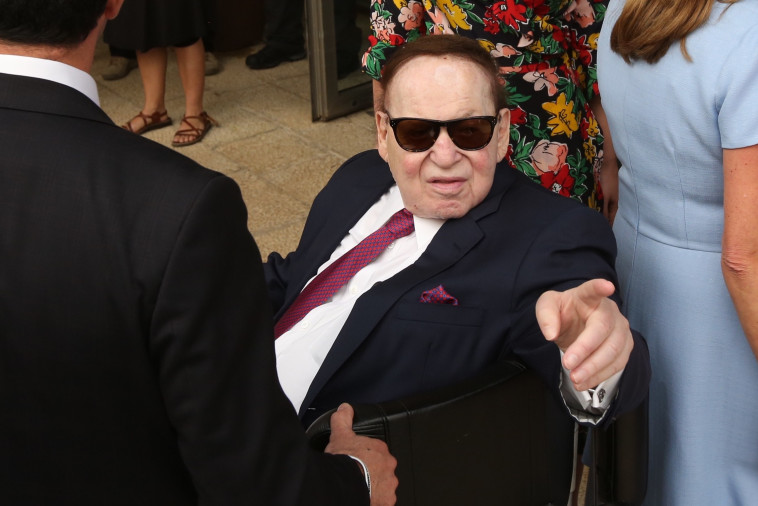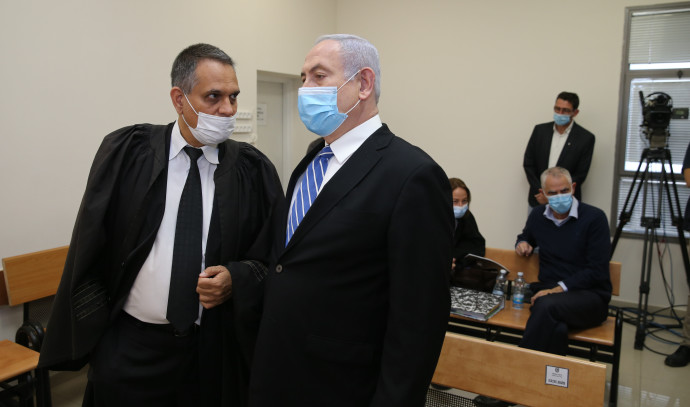Will Sheldon Adelson’s death affect Prime Minister Benjamin Netanyahu’s criminal cases? The testimony of Adelson, who died this week, was a decisive factor in Attorney General Avichai Mandelblit’s decision to accuse Netanyahu in the 2000 case, after the latter was recorded negotiating with Yedioth Ahronoth publisher Noni Mozes for weakening Israel’s power in return. For positive coverage of him in Yedioth Ahronoth.
According to Netanyahu, the negotiations were fake all along, and since the idea never materialized, it could be that proving criminal intent was a particularly difficult task. Due to the difficulty, Mandelblit tended to close the case against the Prime Minister, but even after deciding not to, Netanyahu was still charged only with breach of trust and not with the bribery clause requested by then-State Attorney Shai Nitzan and his staff. Despite this, Moses was indeed accused of bribery.
 Sheldon Adelson (Photo: Mark Israel Salem)
Sheldon Adelson (Photo: Mark Israel Salem)After Mandelblit waived the charge of bribery, he had already hinted that the case was far from well-founded and in order to secure a conviction, the prosecution would have to take advantage of the recordings in which the Prime Minister was heard talking to Moses to refute Netanyahu’s claims. According to the indictment, Netanyahu violated the law when he replied to Moses in December 2014 and described to him how he would pass the law intended to weaken Israel today.
At this point, Adelson entered the picture, describing to the police how, after the fifth of six meetings between Netanyahu and Mozes, the Prime Minister met with Adelson and asked for his help in order to carry out what he had promised to publisher Yedioth Ahronoth. This part of Adelson’s testimony was decisive evidence in Mandelblit’s decision to charge Netanyahu with the 2000 case. Adelson, an ardent supporter of Netanyahu, had no interest in lying and harming the prime minister, and yet he confirmed that Netanyahu acted to fulfill his promise to Moses.
Now that Adelson has died, Netanyahu’s defense team will not be allowed to conduct a cross – examination, and as a result, the 2000 case has weakened. The big question is, to what extent is it weakened. In the trial of former Prime Minister Ehud Olmert, the death of key witness Shmuel Dachner before the defense was able to interrogate him, was a key argument on the part of the defense in order to disqualify his testimony. According to the defense, it would not have been right to convict Olmert, when it is not possible to investigate so centrally in the case.
 Noni Mozes at his trial (Photo: Amit Shabi, Paul)
Noni Mozes at his trial (Photo: Amit Shabi, Paul)But how can the prosecution overcome the difficulty? First, the court sometimes approves evidence, even without cross-examination, in the event that the witness dies and there is no other way to obtain the evidence. Courts tend to attach less importance in their decision to this type of testimony, but they can still be accepted.
Second, the 2000 case does not rely solely on Adelson’s statements. There are still recordings of other committees that can testify to the prime minister’s actions and prove that he acted to weaken Israel today in exchange for positive coverage in Yedioth Ahronoth. Mandelblit may have ruled following Adelson’s testimony on the indictment, but even then Adelson was quite ill, meaning that the ombudsman apparently estimated that the chances of Adelson coming to court to testify were not high in advance.
In contrast, a victory for the defense team in the 2000 case can also affect the 4000 case, as the prosecution is trying in these cases to prove a behavioral pattern. Regardless of the final verdict, Adelson’s death will likely have a profound effect on the progress of Netanyahu’s trial.
